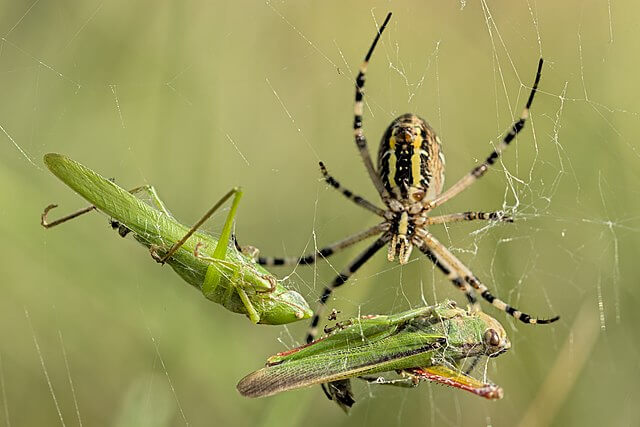
Over the past eight years, ecologists conducting wildlife surveys have documented a northward migration of insects attributed to climate change.
Bath City Farm, spanning Twerton to Southdown, has recorded 1,125 species, including 30 new varieties. Notably, species once rare on the south coast have become commonplace in northern Somerset.
Mike Williams an ecologist and Trustee said: “Insects are important indicator species that help ecologists understand the realities of a changing climate on our natural world.”
The Wasp Spider, initially recorded three years ago, has now become a regular sight.
Mr Williams said: “In the 1990s I only ever saw the Wasp Spider on the south coast of England, in Dorset.
“I would never have imagined then that one day they would be found as far north as Bath.”
Butterfly populations were impacted by a dry spring and wet summer, with the Red Admiral bucking the trend due to fewer frosts, leading to increased numbers.
The Jersey Tiger Moth, once exclusive to the Channel Islands, now resides at the farm. Both Roesel’s Bush Cricket and Long-Winged Conehead cricket populations have surged.
“I tell people on my nature walks around the farm that they are listening to the sound of climate change when we hear them,” Mr Williams said.
However, the reduced frost, while benefiting some species, adversely affects plants like the Yellow Rattle. Global temperature shifts disrupt its life cycle, impeding germination during its usual season.
The ecological changes documented underscore the profound influence of climate change on the geographical distribution and behaviour of various species in the region.
——————————————————————————
At Natural World Fund, we are passionate about stopping the decline in our wildlife.
The decline in our wildlife is shocking and frightening. Without much more support, many of the animals we know and love will continue in their decline towards extinction.
When you help to restore a patch of degraded land through rewilding to forests, meadows, or wetlands, you have a massive impact on the biodiversity at a local level. You give animals a home and food that they otherwise would not have had, and it has a positive snowball effect on the food chain.
We are convinced that this is much better for the UK than growing lots of fast-growing coniferous trees, solely to remove carbon, that don’t actually help our animals to thrive.
This is why we stand for restoring nature in the UK through responsible rewilding. For us, it is the right thing to do. Let’s do what’s right for nature!
Donate today at https://naturalworldfund.com/ and join in the solution!

